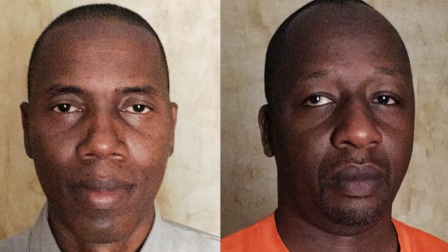South2North’s Redi Tlhabi debates universal health care
Today on Al Jazeera’s talk show South2North, Redi Tlhabi discusses healthcare in developing countries and if the right to health is merely a dream.
“Do all human beings deserve universal health care?” asks Redi at the start of the show, which is broadcast from Johannesburg. “Many developing countries guarantee the right to health in their constitutions, but can they deliver? Rich and poor, black and white – private and public health care systems reflect the inequalities that still dominate our world. Today we look at three developing countries tackling different problems in their health care systems – India, the second most populous country in the world; Cuba, which has a socialist healthcare system; and South Africa, where a debate around national health insurance is underway.”
Redi is joined by Professor Joe Veriava from the Wits School of Clinical Medicine; Dr. Ayanda Ntsaluba, executive director at Discovery Health South Africa; and Dr. Nata Menadbe, the World Health Organisation representative for India.
The Indian healthcare system has to provide for more than 1.2 billion people, which it does through separate systems for its rural and urban citizens.
While Dr. Menadbe admits, “The system has of course its challenges given the scale of the problem,” she points out that, “Vaccine history started in India. It was in 1897 that the first plague vaccine was produced n the plague laboratory in India. Then we had the smallpox eradication. Now India has shown that it has made more than two years without a single polio case.”
The World Health Organisation values the international healthcare industry at around $5.3 trillion. Redi asks Dr. Ntsaluba if private companies like Discovery benefit from government’s inability to provide adequate healthcare.
“I think it’s fair to say, if you look at what has happened over the past 20 years, the South African private industry has developed and grown significantly, and I think it is also fair to say some of that growth and success for the private health industry generally has been linked to certain shortcomings of public health system,” he says.
Professor Veriava holds up the Cuban system as an example of universal healthcare that works. He says the joint emphasis on education (Cuba has a 99% literacy rate), health and political will has resulted in favourable healthcare indicators.
“The health indices we come across in the healthcare system are excellent,” says the professor, pointing out that Cuba’s infant mortality rate is about 4.8 per thousand and the doctor-to-patient rate is six doctors per thousand people, better than any other country.
“In Cuba, people live like the poor but they die like the rich,” he says. “Because a lot of the problems you see among the poor – infectious diseases and all of that – they don’t have that. So they are developing the problems that are common in wealthy countries, such as cardio-vascular disease, such as cancer and all that.”
This week’s episode of South2North premieres at 19:30 GMT on Friday, 30 July 2013 and also screens on Saturday at 14h30, Sunday 04h30 and Monday 08h30.
For more information, visit http://www.aljazeera.com/programmes/south2north/, where all episodes are available to watch online.
You can also tweet your questions, comments and opinions to @AJSouth2North or find South2North on Facebook: http://www.facebook.com/pages/South-2-North/255419671252120.
Catch up on last week’s episode, where Redi discussed the $400bn waste industry, at http://www.youtube.com/watch?v=S_r_VH8OSH8.
Kevin Kriedemann & Joy Sapieka
Stay with Sierra Express Media, for your trusted place in news!
© 2013, https:. All rights reserved.








